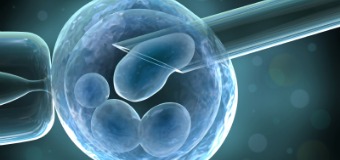Egg and sperm donation should become “as obvious as blood donation”, the chair of the Human Fertilisation and Embryology Authority in the UK, despite the thousands of donor-conceived children who believe they suffered a loss from not knowing their biological parents.
The Daily Telegraph reports that Lisa Jardine said clinics should “improve their customer service”. “We think some patients in centres are not being encouraged that they might donate. We have some evidence, somewhat anecdotal, that donors are not particularly welcomed at clinics. Clinics are more and more busy and donors are [treated as] a sort of side issue.”
She added that women going through fertility treatment, who will most likely produce more eggs than they need for themselves, should be encouraged to donate them to others.
The HFEA are considering setting up “centres of excellence” that focus specifically on donors, rather than having egg and sperm collected at the same clinics where they are implanted in receivers.
HFEA figures show there were 480 new sperm donors registered in 2010, alongside 1,258 egg donors, compared with 323 sperm donors and 1,241 egg donors in 2000. In 2009, 1,084 children were born from donor sperm and 593 from donor eggs. Donor embryos accounted for a further 79 children.
The HFEA recently tripled the payment to women donating their eggs from £250 to £750 per cycle of donation. Men are paid £35 per visit, with a single donation requiring them to make up to six visits.
Laura Witjens, Chair of the National Gamete Donation Trust, said raising awareness about sperm and egg donation could make it a subject people “talk about in the pub” and end the stigma around male donors.
Donors should also be encouraged to write a “pen picture” of themselves to comfort couples using their eggs or sperm and “satisfy the curiosity” of the children conceived by IVF as they grow up, she added.
Clinics are failing to give donors enough time to fill out the section of the paperwork which asks them to “describe [themself] as a person” because they fear the details will make receivers more picky, she said.
“Its not meant as a dating agency but they need to have something about this person that is so important in their lives.”
Ms Jardine added: “It provides a lot of comfort to parents, it is all they will ever be able to get unless their child chooses to find out more when they are older.”















